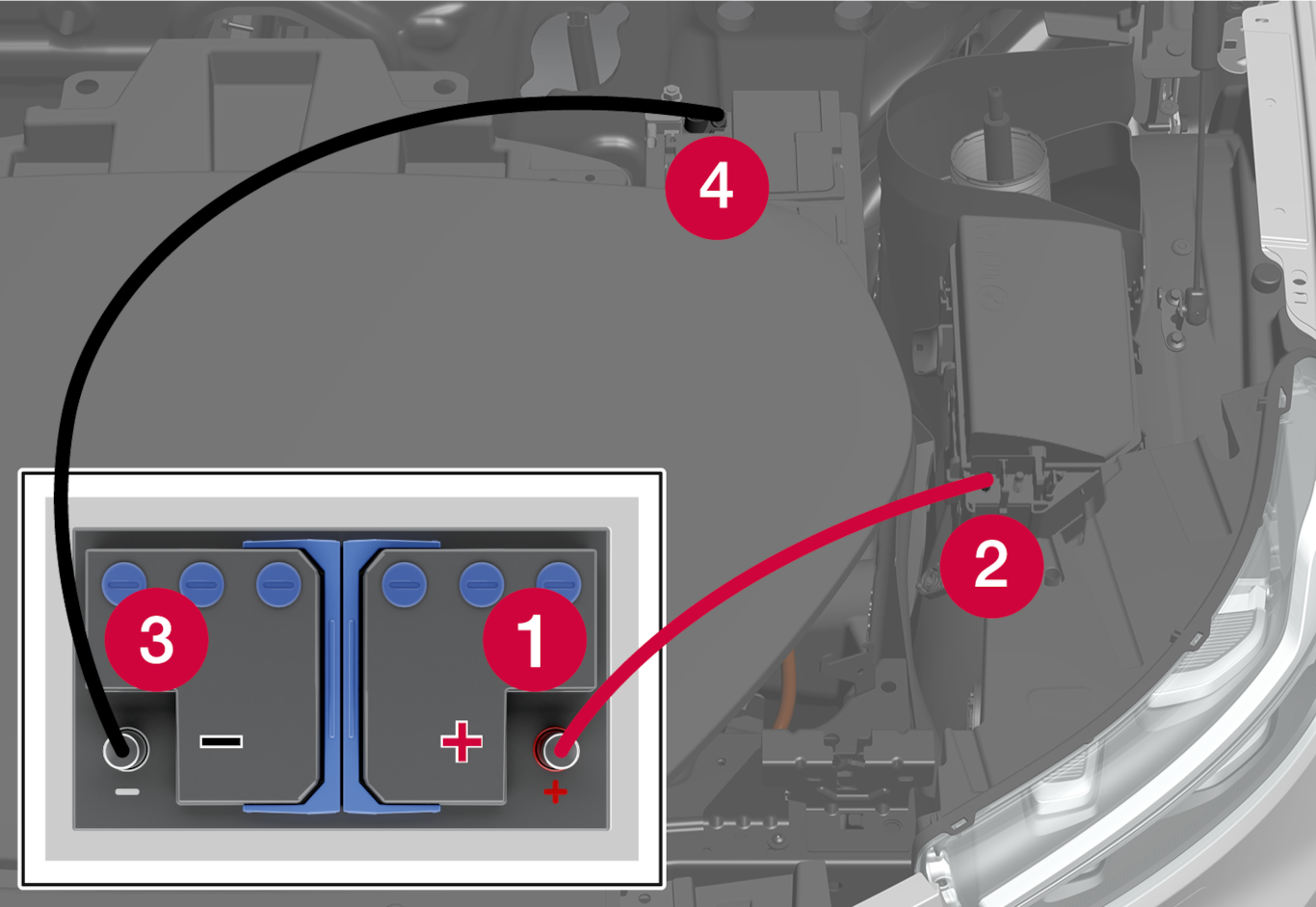Under normal conditions the 12 V battery is charged at the same time as the car is charged, as well as via current transfer directly from the high voltage battery when the car is not connected for charging.
If for some reason the 12 V battery is still discharged, jump starting can be carried out. Causes can be e.g. that the car has not been used for a long time, a temporary fault or a blown fuse in the car's charging circuit. A discharged 12 V battery needs to be charged enough to be able to start the car's electrical system. After start-up it is possible to start charging the car using the charging cable, which is necessary if the high voltage battery is also discharged. If the car, in such a situation, is out of range for charging, it must be towed.
To jump start, jump leads are needed, which are connected to the 12 V battery's charging points.
Important
The car's charging points are only intended for jump starting the car itself. The charging points are not intended for jump starting another car. Using the charging points for jump starting another car may cause a fuse to blow, which means the charging points will stop working.
If the message 12 V battery fuse failure Service required is shown in the driver display then a fuse has blown and needs to be changed. Volvo recommends that an authorised Volvo workshop should be contacted.

When jump starting the car, the following steps are recommended to avoid short circuits or other damage:
Important
Important
Note
Remove the jump leads in reverse order - first the black and then the red.
Make sure that neither of the black jump lead's clamps comes into contact with the car's positive charging point, the donor battery's positive terminal or the red jump lead's clamps.
Note
Warning
- The 12 V battery can generate oxyhydrogen gas, which is highly explosive. A spark can be formed if a jump lead is connected incorrectly, and this can be enough for the battery to explode.
- The 12 V battery contains sulphuric acid, which can cause serious burns.
- If sulphuric acid comes into contact with eyes, skin or clothing, flush with large quantities of water. If acid splashes into the eyes - seek medical attention immediately.
- Never smoke near the battery.